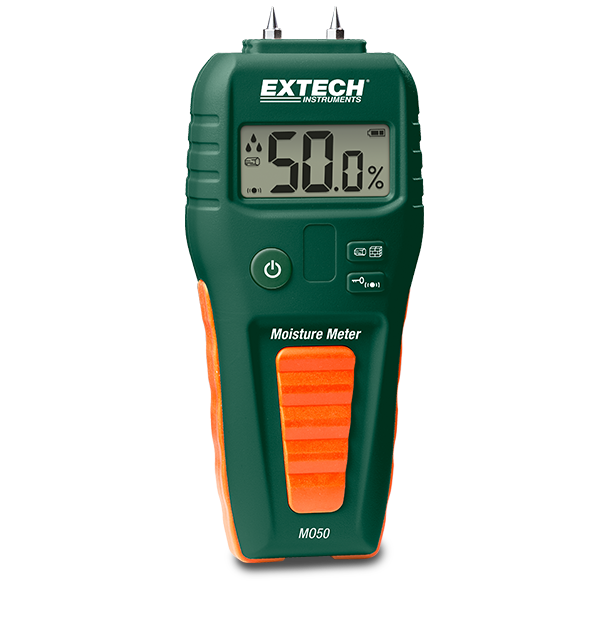Why Every Property Owner Needs a Moisture Meter: Trick Advantages and Attributes
Why Every Property Owner Needs a Moisture Meter: Trick Advantages and Attributes
Blog Article
The Ultimate Guide to Wetness Meters: A Comprehensive Summary and How They Can Conserve You Cash
In the realm of structure maintenance, building, and numerous sectors, the value of accurately measuring moisture degrees can not be overemphasized. Wetness meters function as crucial devices in finding and keeping an eye on moisture content in materials, aiding in preventing expensive problems and making sure the top quality of products. Understanding the subtleties of different types of dampness meters, their applications, and the potential cost-saving benefits they provide can be a game-changer for businesses and experts alike. Discovering how these tools can not just streamline procedures yet also add to monetary cost savings is a trip worth getting started on.
Types of Wetness Meters
Numerous kinds of wetness meters are readily available for different applications in numerous industries. One common kind is the pin-type moisture meter, which determines the electric resistance between two pins placed right into a material. This type is appropriate for timber, drywall, and other building products. Pinless wetness meters, on the other hand, usage electro-magnetic sensor plates to scan a larger area without triggering damages to the material's surface area. Moisture Meter. These meters are perfect for promptly assessing moisture levels in big areas such as walls and floors.

Moreover, there are likewise specialized dampness meters developed for specific products like hay, dirt, or grain. These meters offer precise moisture analyses tailored to the one-of-a-kind residential properties of the product being examined. Infrared wetness meters determine the thermal buildings of a product to establish its moisture web content non-invasively, making them helpful for applications where pin or pinless meters might not appropriate. Understanding the different kinds of wetness meters offered can assist sectors choose one of the most suitable tool for their details moisture measurement needs.

Advantages of Utilizing Dampness Meters
Wetness meters provide very useful advantages in accurately checking and evaluating wetness degrees in diverse materials and atmospheres (Moisture Meter). Among the main benefits of making use of moisture meters is the prevention of potential damage triggered by excess wetness. By finding and dealing with high dampness degrees at an early stage, moisture meters aid to avoid mold growth, rot, and structural damage in structures, conserving both money and time on repair work. Additionally, wetness meters help in ensuring the top quality of products throughout building and construction or manufacturing processes. By accurately gauging dampness web content, these tools help keep the honesty of timber, drywall, concrete, and other products, decreasing the danger of flaws or failings.
Additionally, utilizing dampness meters can cause enhanced energy effectiveness. By recognizing locations with high dampness degrees, such as leakages or poor insulation, changes can be made to improve energy conservation and reduce utility costs. In agricultural setups, moisture meters play an see post essential function in enhancing crop yields by making it possible for farmers to monitor soil moisture levels and make educated watering choices. Generally, the benefits of using wetness meters extend throughout numerous markets, giving cost-efficient solutions and promoting better high quality control techniques.
Just How to Select the Right Dampness Meter
When selecting a wetness meter, it's necessary to make certain that the meter is appropriate for the certain material you will be screening. Different materials have differing electric buildings that can impact wetness readings, so selecting a meter developed for your product is critical for precise results. By carefully evaluating these aspects, you can select a dampness meter that meets your requirements and supplies exact moisture measurements for your projects.
Appropriate Methods for Dampness Meter Usage

Expense Cost Savings With Wetness Meter Applications
Exactly how can the tactical application of wetness meters lead to significant expense savings across numerous markets? In the farming market, dampness meters aid in establishing the ideal time for collecting crops, protecting against over-drying or excess dampness that can impact the last product's high quality.
In a similar way, in building, dampness meters assist protect against costly problems by spotting wetness you can check here degrees in building products, such as timber or concrete, which can result in architectural issues if not attended to quickly. By recognizing problem areas early on, service providers can take corrective procedures to avoid comprehensive fixings or replacements, eventually conserving time and money.
Additionally, in the food handling sector, moisture meters are important for checking item high quality and making sure conformity with safety policies. By precisely gauging dampness content in food products, producers can stop perishing, maintain freshness, and minimize waste, causing substantial cost savings. Overall, the tactical application of wetness meters is a beneficial financial investment that can bring about substantial cost reductions and enhanced effectiveness throughout numerous markets.
Final Thought
In final thought, dampness meters are important devices for detecting and gauging wetness degrees in different products. By using the appropriate wetness meter and adhering to proper strategies, users can successfully prevent pricey problems created by excess wetness.
Wetness meters offer as indispensable devices in discovering and keeping an eye on moisture content in products, helping in stopping expensive problems and guaranteeing the top quality of products. Infrared dampness meters measure the thermal homes of a product to determine its wetness content non-invasively, making them beneficial for applications where pin or pinless meters may not be suitable.Dampness meters offer very useful benefits in properly assessing and checking dampness levels in varied products and atmospheres. In farming settings, wetness meters play an essential function in maximizing crop yields by making it possible for farmers to monitor soil wetness degrees and make educated watering decisions.In conclusion, wetness meters are beneficial devices for detecting and determining dampness levels in various materials.
Report this page